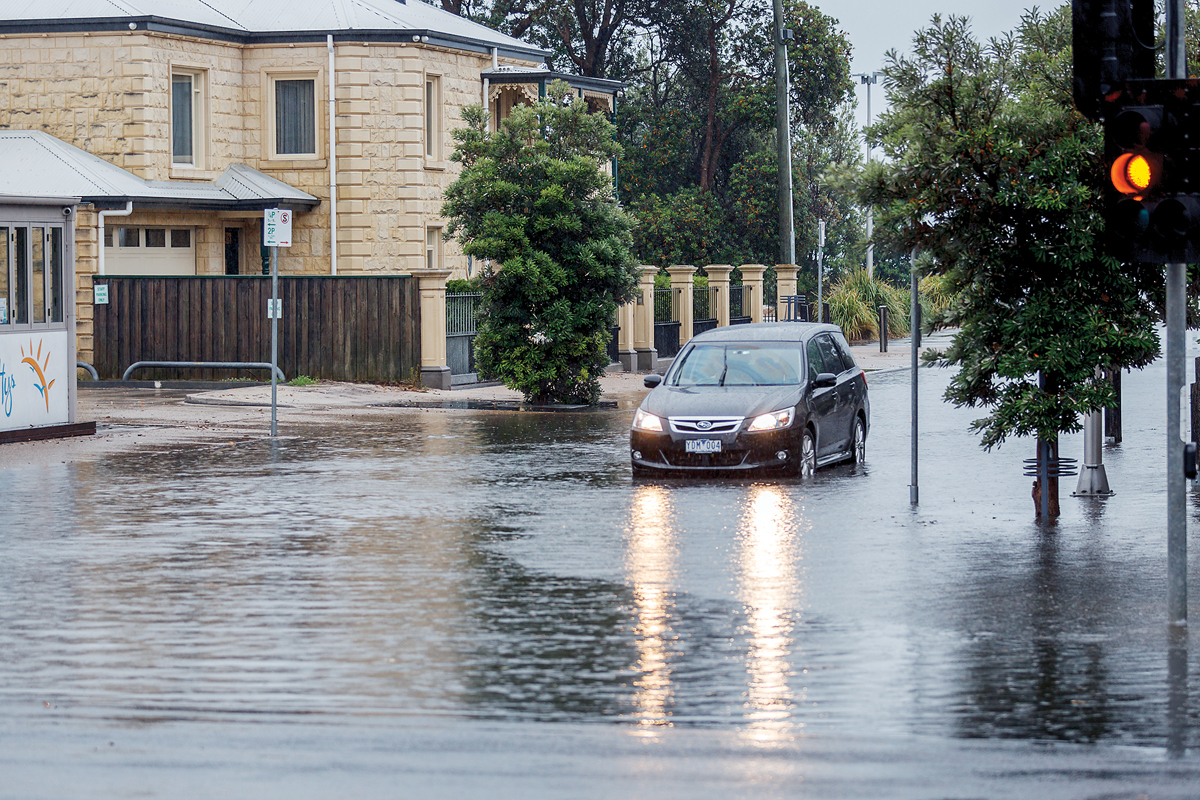MORNINGTON Peninsula Shire councillors have narrowly decided to ditch the shire’s climate emergency declaration after questions were raised about whether spending $11.7m was “delivering genuine value”. The decision was made at the council’s 22 April meeting, which will now see a “renewed focus on practical, community-focused climate initiatives”. This is despite the shire having unanimously adopted a climate emergency declaration in 2019, along with 30 other councils in the state.
But deputy mayor Cr Paul Pingiaro, who led the motion to scrap the declaration along with its associated climate emergency plan, said it was “never been about denying or dismissing climate change”, but “ensuring that every dollar we spend delivers something tangible, measurable and real”.
Following a lengthy debate at the meeting, councillors narrowly supported the motion in a 6-5 vote, prompting criticism from various environment groups including the Mornington Peninsula Climate Action Network.
In presenting his case, Pingiaro said, “Over the past three years, this council has invested over $11.7m into climate related initiatives, including $4.15m in wages – that’s a serious investment, but what’s missing is equally serious, clear, visible, community facing outcomes”. Pingiaro said additionally the council planned to spend $534,000 as part of its urban forest strategy without a single tree being planted. “That’s not climate action, that’s expense without delivery,” he said.
He also took aim at a weather station pilot with $200,000 spent on public consultation which received three responses, noting the “new units won’t deliver early warnings” nor “integrate with big emergency”. “Meanwhile, the same council that declared the climate emergency also built a gas heated Aquatic Centre Yawa, responsible for 50 per cent of the shire’s gas use, and yet we asked residents to electrify. That’s not climate leadership, that’s policy contradiction.”
But Cr Michael Stephens, who voted against the motion, said he was deeply concerned as the climate declaration “was not just a simple symbolic gesture, it provided a road map”. He said requiring every climate action to come with its own separate budget report might sound financially responsible, “but in reality it creates a fragmentation, inefficient process”. “It makes it easier to delay, to defund and to quietly shelve vital projects without scrutiny,” he told the meeting. “Worse, there’s no mention in the motion of how the community will now be involved with shaping climate policy.”
Cr David Gill also voted against the motion, noting the council had been applauded for its efforts in addressing climate change, which in turn brought return on investment on projects such as energy efficient upgrades, solar uptake, having electric vehicle chargers, as well as emergency back-up systems installed at Red Hill and Balnarring. “It’s all about climate change and what we can do, and we should be doing everything we can because the return on investment increases year by year. Paying a dollar now saves $10,” he said.
A statement released by the shire after the meeting said the new framework would see all future climate-related proposals subject to individual council reports or itemised budget bids, “with clear measures of effectiveness”. “Each project must also consider emissions and provide comparison data for alternative options, supporting more informed decision-making.”
Mayor Cr Anthony Marsh said the decision to overturn the council’s climate emergency declaration “reflects a more outcomes-based approach to climate action”. “This is not about stepping away from climate responsibility. It is about stepping forward with a clearer focus,” he said. “We want to deliver results that people can see and benefit from. That means investing in better drainage, protecting our coastline from erosion, supporting sustainable infrastructure, and making sure every climate-related initiative is practical, measurable and linked to community priorities.”
Cr Max Patton, who voted against the motion, noted the declaration plan was adopted with 92 per cent of the community’s support. Without it, he said there were no targets or implementation strategy, but rather “vague talk of focus and local outcomes without the structure to deliver any of it”.
The decision comes after councillors in January decided to take a closer look at how ratepayer money was spent in its fight against climate change in what one councillor labelled as “wasteful projects” including funding dishwasher upgrades for a private school (Call to end ‘wasteful climate change project’, The News 25/02/25).
Mornington Peninsula Climate Action Network (MPcan) member Jason Gardner said their group was “incredibly disappointed” by the council’s decision made without community consultation while being “pushed through quietly over a long weekend with minimal opposition”. He said the MPcan group was a key stakeholder in community consultation when the shire adopted its climate emergency declaration in 2019.
“I only learned late last week that there was a possibility of the climate action plan being scrapped at the upcoming council meeting, so I emailed our mayor, Anthony Marsh on Easter Sunday to raise my concern,” Gardner said.According to Gardner, the mayor had given him assurances that any proposed motion would be up for public debate, which he said did not occur.
“It is hard to believe that this decision is about fiscal responsibility and transparency as advertised, when the council’s own report demonstrated net saving as a result of climate actions implemented to date, and when constituents are being given false assurances in order to minimise attention on an upcoming motion.”
First published in the Mornington News – 29 April 2025




